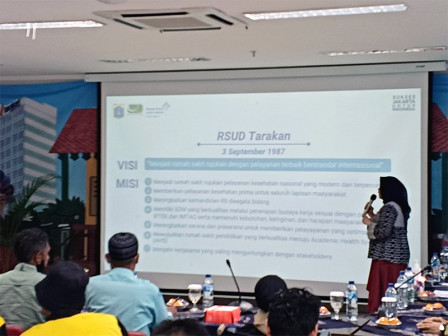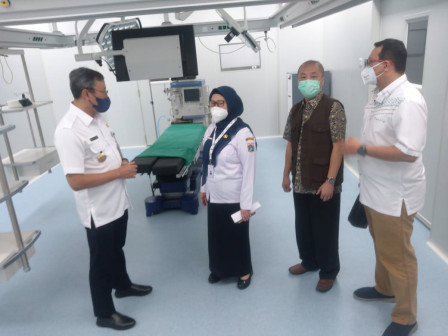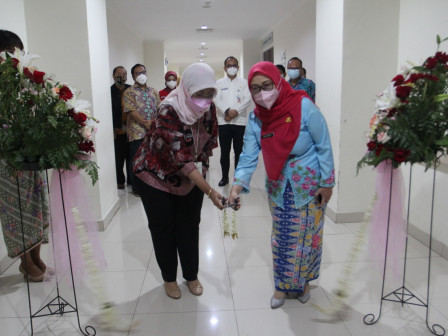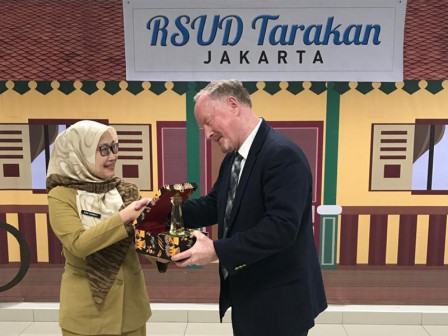Tarakan RSUD Commits to Improving the Best Service
Reported by Budhi Firmansyah Surapati | Translated by Nugroho Adibrata
The Tarakan Regional General Hospital (RSUD), is holding public consultations and evaluations in order to improve the best service for patients, Thursday (6/13).
This is an important agenda, as we always place service as a priority for the community
There were 50 participants in the activity held in the Medium Meeting Room, 13th Floor, Sky Building, Tarakan Regional Hospital. They were from elements of health practitioners, social institutions, community leaders, and regional stakeholders, ranging from the urban village level to the Mayor of Central Jakarta.
Tarakan RSUD President Director, Dian Ekowati said she wanted to ask for input and evaluation of the services that had been provided.
Nagoya University, Dinkes Confirm Cooperation toward Hospital Services"This is an important agenda, as we always place service as a priority for the community," she expressed.
She asserted input and creative practices in this public consultation forum would be used as material in formulating service improvements. Thus, in the future, the hospital's services will be better and more excellent, in line with community expectations.
"Hopefully, it will be a good start in building the best health services," she asserted.
Tarakan RSUD Services Vice Director, Weningtyas Purnomorini added the Tarakan RSUD has a total of 454 patient beds, divided from VVIP class to class III.
As the only regional hospital with class A classification, the hospital also has a variety of health services such as a stroke unit, heart surgery services, non-major surgery, operating rooms for donors and recipients, as well as complete medical check-ups with an integrated service system.
For the patient registration system, the hospital has implemented online services. Queue management has also used the integrated JKN and Jaksehat online mobile services.
"We also have a complaint reception room and a barcode when the service is finished. For patients who have input, we have an information desk manned by public relations officers," she explained.
The hospital services received appreciation from one of the patients, Marcelinus B.A. The parents of this pediatric oncology patient suggested that separate sterile rooms should be provided in the emergency room for patients in the infection-prone category and general patients while waiting for treatment rooms to become available.
"Including pharmaceutical services, hopefully, a priority scale will be applied according to emergency status. Then, if possible, menu variations will be improved," he stated.





